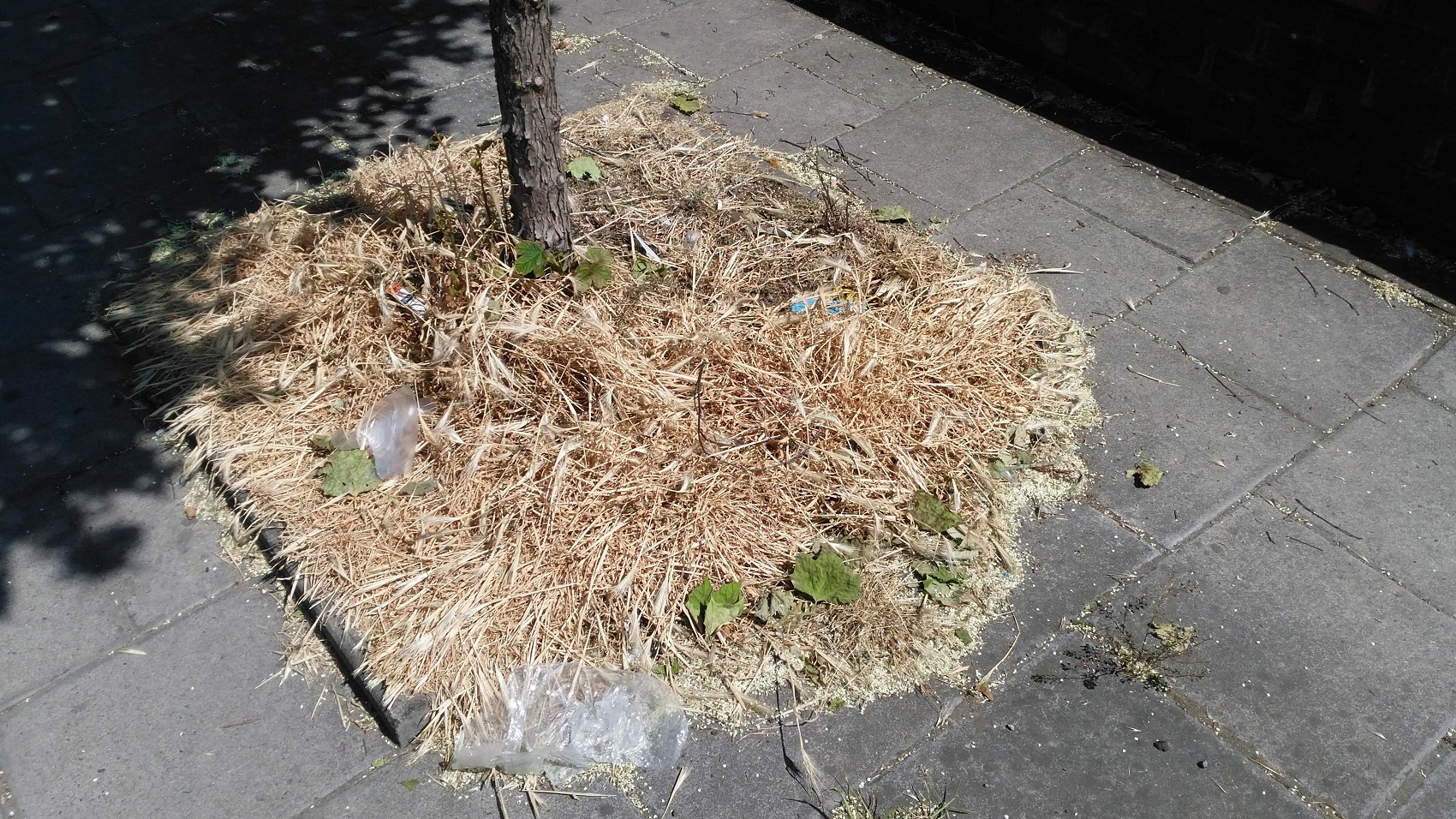 Meet Janie Bickersteth, Pesticide-Free Lambeth
Meet Janie Bickersteth, Pesticide-Free Lambeth
What made you want to campaign to make your area pesticide free?
Over the past few years, I, like many others, have become increasingly concerned about the overuse of pesticides on our agricultural land, the degradation of our soils, the spoiling of our river systems and our potentially toxic exposure to chemicals when we eat non-organic fruit and veg. But, until I moved back to Lambeth three years ago, I had no idea how regularly our streets, estates and parks were sprayed with herbicides. It horrified me that my front garden, which has been full of vegetables I grew for our family, could be exposed to the glyphosate sprayed on my street. Thankfully, I am part of an organisation called Incredible Edible Lambeth, with a membership of around 500. A couple of years ago, we felt the time was right to push our local authority to ban glyphosate from our streets and housing estates. I was not alone in the fight!
How did you start your campaign i.e. finding key allies?
From the start, we engaged our members by inviting them to pledge to go pesticide-free in their own green spaces. We worked with PAN UK to persuade and encourage – we had conversations with the Council and with heads of tenant management organisations (TMOs), we set up a campaign on our website, and got in touch with other groups and individuals campaigning for change. By working together as a collective we can make a bigger impact!
How did you sustain it and build momentum in your community?
To date, we’ve run a webinar on biodiversity where we had key speakers such as Professor Dave Goulson testify to the growing loss of insects crisis. We hold monthly ‘food matters’ Zoom events on different topics with speakers and a Q&A session. We’ve also produced various written resources for campaigners, councillors and the public to learn more about the issue and how to tackle it. We release a monthly Incredible Edible Lambeth newsletter for our members which provides information on our campaign – see our poster here. We’ve written a piece ‘Insect Love’ for the local press which you can also read a blog about on our website here. We were featured in the recent report Decline in Insects by the Wildlife Trust. We have collated a briefing document here which might be useful to other towns and boroughs. Finally, we devised and presented a document with Incredible Edible Lambeth’s vision for biodiversity and food growing to the Council.
Another key moment in the campaign took place during a ‘meet the residents’ event organised by the Council and their contractor Veolia, where two of us managed to get a pledge from one of the senior Veolia employees, contracted to spray our streets. He personally authorised for the two streets that we lived on not to be sprayed. This initial agreement has led to a borough-wide agreement from the Council that people can ‘opt out’ of having their street sprayed – if they agree to manage the weeding on their streets themselves. So far, at least 30 streets have opted out. In truth, we think an ‘opt in’ to glyphosate spraying is a more powerful message, with people really having to consider “Do I really want my street sprayed with harmful chemicals?” But, this is a start, and we will be monitoring progress along with the Council’s agreements to phase out glyphosate.
Our most substantial successes have been a ban on the use of glyphosate on all Council-run housing estates across Lambeth with immediate effect (that was in August 2020), and an agreement to phase-out glyphosate on our streets from next year.

Tree pits in Lambeth sprayed with glyphosate – thanks to campaigning this will no longer take place. Credit: Janie Bickersteth
What challenges did you face along the way and how did you overcome them?
The constant challenge is getting the Council to change because their “hands are tied” as they are bound into maintenance contracts. The recurring arguments are that “alternatives are too expensive” or “not effective”. We have worked hard to combat these claims – cost to human and planetary health far outweighs immediate Council costs – and it is an ongoing project to change hearts and minds.
One clear setback has been the Coronavirus pandemic. At a meeting with the Council in November 2019 they appeared to agree to our proposal of a phasing-out of glyphosate and to stop spraying on our streets by October 2020. With the current situation, this has all been set back by about 6-9 months.
But there is much positive news to celebrate: the maintenance contracts for the many housing estates in the borough are being taken back in-house from next April, and at this point, the Council will have its own team manage weed-control in a different way. The Council has also agreed that in October 2021 they will no longer use glyphosate. We will continue to put pressure on them.
What would be your advice for someone struggling with their campaign?
Never give up – however many setbacks you experience!
What next for you and your campaign?
We have 13 TMOs and many housing associations who do not have to abide by decisions that Councils make for their land. Our next step is to get an agreement across all the TMOs and other housing associations to stop using glyphosate – our campaign is now about getting all other land owners, highways and road companies as well as Transport for London and housing associations to start bringing in these glyphosate-free grounds maintenance plans.
We are also working closely with the Council on a new management plan for our estates to manage the green space for biodiversity and food growing – we are piloting in six areas to start, but our goal is for a glyphosate-free borough.
